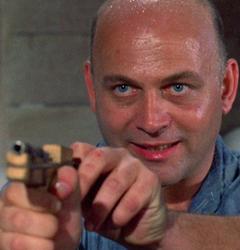Really? So WiFi (which has been out for more than 20 years) is still covered by patents? Lolz - No. It's called 35 U.S.C. 102 - read it.Speaker to Animals wrote: Thu Jun 20, 2019 6:26 amTry doing literally anything in the tech world on your own. You need a massive warchest of patents, or a shit ton of capital to purchase rights to use algorithms that are patented, to do pretty much anything.Zlaxer wrote: Thu Jun 20, 2019 6:23 amHow do they choke innovation? Specifics other than parroting the carte blanche statements of big tech and their henchmen.Speaker to Animals wrote: Thu Jun 20, 2019 6:22 am
They are terrible because they inflict great harm on society and are choking innovation.
Want to build a wireless network? You need to purchase rights to literally thousands of patents to build a wireless network right now.
Intellectual Property and the Structure of Human Action
-
Zlaxer
- Posts: 5377
- Joined: Fri Dec 02, 2016 5:04 am
Re: Intellectual Property and the Structure of Human Action
-
Speaker to Animals

- Posts: 38685
- Joined: Wed Nov 30, 2016 5:59 pm
Re: Intellectual Property and the Structure of Human Action
(1) I think we no longer pursue actual cures for diseases because we transitioned to the Big Pharma paradigm from the government lab paradigm. So right off the bat I think the question stems from an illegitimate assumption that Big Pharma does much good in the first place.Zlaxer wrote: Thu Jun 20, 2019 6:24 amSo you don't think patents (which are limited in term) spur innovation? You don't think companies invest $$$$$$$ in R&D because of the giant fucking carrot that is a 15-18 yr monopoly?Speaker to Animals wrote: Thu Jun 20, 2019 6:22 am If you want to look at it from the lolberg perspective, they destroy the idea of a free market. You should succeed by competition, not by graft and government interference.
You think Big Pharma would crank out miracle drugs if they knew generic manufactures could reverse engineer their drugs in a few months and undercut them?
(2) If we really want some kind of magical drug that does not yet exist, we are better off using a bounty system than a patent system. The innovator gets a huge bounty which gets his product to market much, much faster and compensates him for the capital and labor he put into researching the solution in the first place. No patents are needed.
-
Zlaxer
- Posts: 5377
- Joined: Fri Dec 02, 2016 5:04 am
Re: Intellectual Property and the Structure of Human Action
Speaker to Animals wrote: Thu Jun 20, 2019 6:28 am(1) I think we no longer pursue actual cures for diseases because we transitioned to the Big Pharma paradigm from the government lab paradigm. So right off the bat I think the question stems from an illegitimate assumption that Big Pharma does much good in the first place.Zlaxer wrote: Thu Jun 20, 2019 6:24 amSo you don't think patents (which are limited in term) spur innovation? You don't think companies invest $$$$$$$ in R&D because of the giant fucking carrot that is a 15-18 yr monopoly?Speaker to Animals wrote: Thu Jun 20, 2019 6:22 am If you want to look at it from the lolberg perspective, they destroy the idea of a free market. You should succeed by competition, not by graft and government interference.
You think Big Pharma would crank out miracle drugs if they knew generic manufactures could reverse engineer their drugs in a few months and undercut them?
(2) If we really want some kind of magical drug that does not yet exist, we are better off using a bounty system than a patent system. The innovator gets a huge bounty which gets his product to market much, much faster and compensates him for the capital and labor he put into researching the solution in the first place. No patents are needed.
Who picks the target of the bounty? Seems way to open to corruption.
-
Speaker to Animals

- Posts: 38685
- Joined: Wed Nov 30, 2016 5:59 pm
Re: Intellectual Property and the Structure of Human Action
No. That's being dishonest.Zlaxer wrote: Thu Jun 20, 2019 6:27 amReally? So WiFi (which has been out for more than 20 years) is still covered by patents? Lolz - No. It's called 35 U.S.C. 102 - read it.Speaker to Animals wrote: Thu Jun 20, 2019 6:26 amTry doing literally anything in the tech world on your own. You need a massive warchest of patents, or a shit ton of capital to purchase rights to use algorithms that are patented, to do pretty much anything.Zlaxer wrote: Thu Jun 20, 2019 6:23 am
How do they choke innovation? Specifics other than parroting the carte blanche statements of big tech and their henchmen.
Want to build a wireless network? You need to purchase rights to literally thousands of patents to build a wireless network right now.
What made high-speed wireless bandwidth possible was the turbocoding algorithm. This algorithm was discovered in the early 90s and patented in 1991. It did not become public domain until 2013. It was not until 2013 that you saw rapid innovation in wireless network bandwidth because that patent made it only viable for narrow applications. After 2013 we saw an explosion in bandwidth.
It hurt innovation in a big way.
-
Speaker to Animals

- Posts: 38685
- Joined: Wed Nov 30, 2016 5:59 pm
Re: Intellectual Property and the Structure of Human Action
Patents aren't corrupt? Please. False dichotomy.Zlaxer wrote: Thu Jun 20, 2019 6:29 amSpeaker to Animals wrote: Thu Jun 20, 2019 6:28 am(1) I think we no longer pursue actual cures for diseases because we transitioned to the Big Pharma paradigm from the government lab paradigm. So right off the bat I think the question stems from an illegitimate assumption that Big Pharma does much good in the first place.Zlaxer wrote: Thu Jun 20, 2019 6:24 am
So you don't think patents (which are limited in term) spur innovation? You don't think companies invest $$$$$$$ in R&D because of the giant fucking carrot that is a 15-18 yr monopoly?
You think Big Pharma would crank out miracle drugs if they knew generic manufactures could reverse engineer their drugs in a few months and undercut them?
(2) If we really want some kind of magical drug that does not yet exist, we are better off using a bounty system than a patent system. The innovator gets a huge bounty which gets his product to market much, much faster and compensates him for the capital and labor he put into researching the solution in the first place. No patents are needed.
Who picks the target of the bounty? Seems way to open to corruption.
-
Zlaxer
- Posts: 5377
- Joined: Fri Dec 02, 2016 5:04 am
Re: Intellectual Property and the Structure of Human Action
Dude - patented in 1991 - patents are published at issuance - you know that right?Speaker to Animals wrote: Thu Jun 20, 2019 6:31 amNo. That's being dishonest.Zlaxer wrote: Thu Jun 20, 2019 6:27 amReally? So WiFi (which has been out for more than 20 years) is still covered by patents? Lolz - No. It's called 35 U.S.C. 102 - read it.Speaker to Animals wrote: Thu Jun 20, 2019 6:26 am
Try doing literally anything in the tech world on your own. You need a massive warchest of patents, or a shit ton of capital to purchase rights to use algorithms that are patented, to do pretty much anything.
Want to build a wireless network? You need to purchase rights to literally thousands of patents to build a wireless network right now.
What made high-speed wireless bandwidth possible was the turbocoding algorithm. This algorithm was discovered in the early 90s and patented in 1991. It did not become public domain until 2013. It was not until 2013 that you saw rapid innovation in wireless network bandwidth because that patent made it only viable for narrow applications. After 2013 we saw an explosion in bandwidth.
It hurt innovation in a big way.
And so what if Wifi innovation was stiffed for 20 years after the public disclosure - we got WiFi in 1991...perhaps we would have gotten it much latter if there was no incentive to make a shit ton of cash off it.
Last edited by Zlaxer on Thu Jun 20, 2019 6:34 am, edited 1 time in total.
-
Fife

- Posts: 15157
- Joined: Wed Nov 30, 2016 9:47 am
Re: Intellectual Property and the Structure of Human Action
Central planning addicts and lovers of state-gangster-ordered-monopolies should be included in the defective IQ pool discussion that's popping this morning.
-
Speaker to Animals

- Posts: 38685
- Joined: Wed Nov 30, 2016 5:59 pm
Re: Intellectual Property and the Structure of Human Action
Zlaxer wrote: Thu Jun 20, 2019 6:32 amDude - patented in 1991 - patents are published at issuance - you know that right?Speaker to Animals wrote: Thu Jun 20, 2019 6:31 amNo. That's being dishonest.Zlaxer wrote: Thu Jun 20, 2019 6:27 am
Really? So WiFi (which has been out for more than 20 years) is still covered by patents? Lolz - No. It's called 35 U.S.C. 102 - read it.
What made high-speed wireless bandwidth possible was the turbocoding algorithm. This algorithm was discovered in the early 90s and patented in 1991. It did not become public domain until 2013. It was not until 2013 that you saw rapid innovation in wireless network bandwidth because that patent made it only viable for narrow applications. After 2013 we saw an explosion in bandwidth.
It hurt innovation in a big way.
https://en.wikipedia.org/wiki/Turbo_codeThe fundamental patent application for turbo codes was filed on April 23, 1991. The patent application lists Claude Berrou as the sole inventor of turbo codes. The patent filing resulted in several patents including US Patent 5,446,747, which expired August 29, 2013.
Care to take a wild guess as to why wireless bandwidth did not become so good that you could easily stream HD movies only until after 2013??
-
Zlaxer
- Posts: 5377
- Joined: Fri Dec 02, 2016 5:04 am
Re: Intellectual Property and the Structure of Human Action
Fife wrote: Thu Jun 20, 2019 6:33 am Central planning addicts and lovers of state-gangster-ordered-monopolies should be included in the defective IQ pool discussion that's popping this morning.
-
Zlaxer
- Posts: 5377
- Joined: Fri Dec 02, 2016 5:04 am
Re: Intellectual Property and the Structure of Human Action
Speaker to Animals wrote: Thu Jun 20, 2019 6:34 amZlaxer wrote: Thu Jun 20, 2019 6:32 amDude - patented in 1991 - patents are published at issuance - you know that right?Speaker to Animals wrote: Thu Jun 20, 2019 6:31 am
No. That's being dishonest.
What made high-speed wireless bandwidth possible was the turbocoding algorithm. This algorithm was discovered in the early 90s and patented in 1991. It did not become public domain until 2013. It was not until 2013 that you saw rapid innovation in wireless network bandwidth because that patent made it only viable for narrow applications. After 2013 we saw an explosion in bandwidth.
It hurt innovation in a big way.https://en.wikipedia.org/wiki/Turbo_codeThe fundamental patent application for turbo codes was filed on April 23, 1991. The patent application lists Claude Berrou as the sole inventor of turbo codes. The patent filing resulted in several patents including US Patent 5,446,747, which expired August 29, 2013.
Care to take a wild guess as to why wireless bandwidth did not become so good that you could easily stream HD movies only until after 2013??
K - but don't you think the carrot of the monopoly pushed people to develop those protocols sooner than if there was no incentive? Takes $$$$ for R&D - high risk of being ripped off makes it hard to get investor cash.